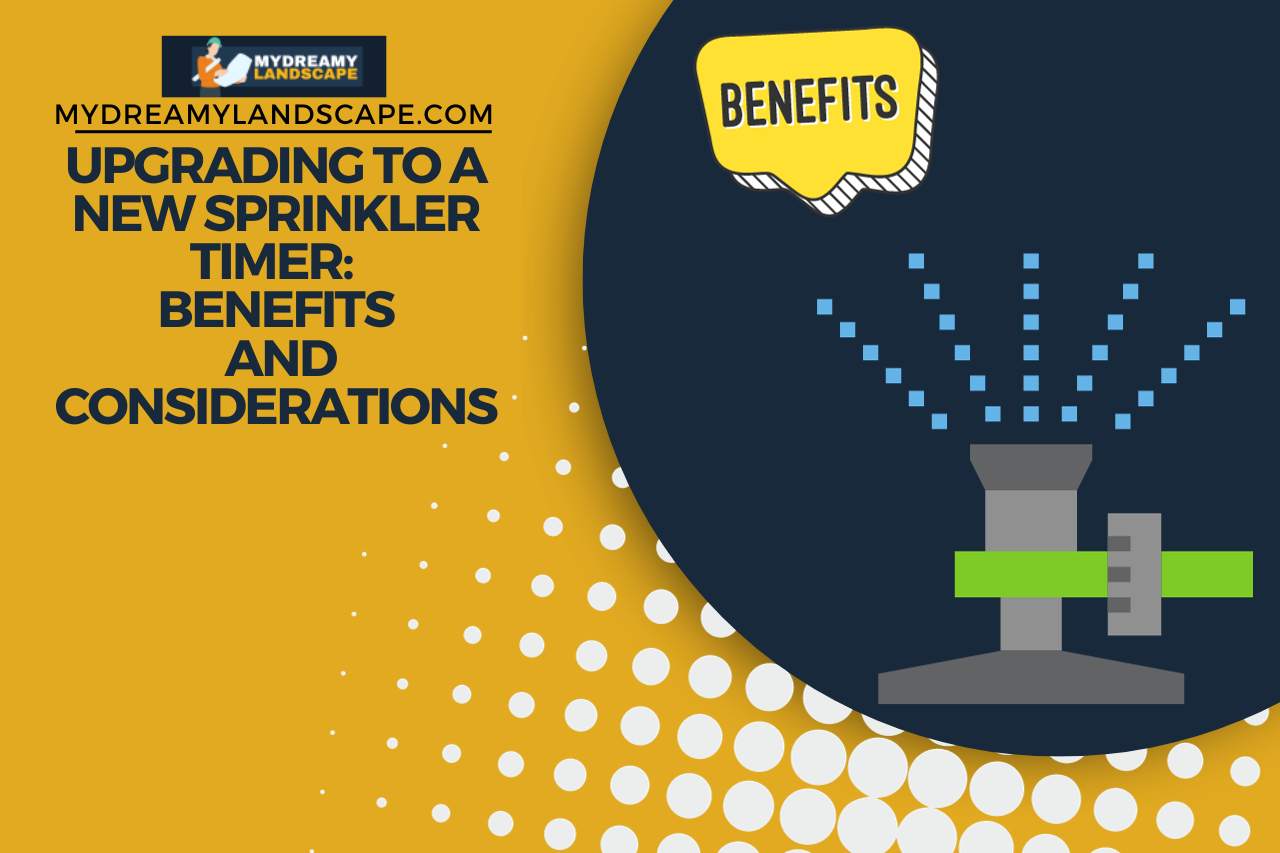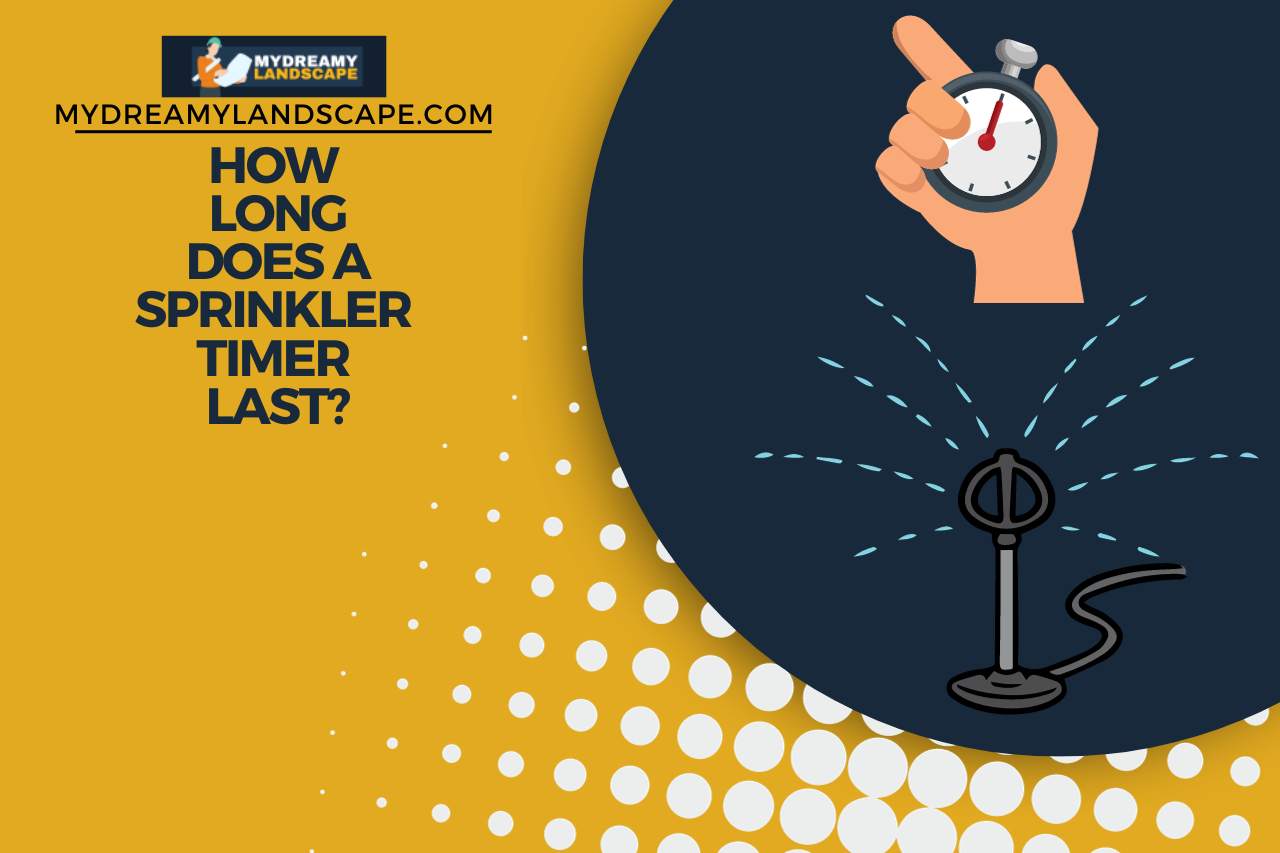How Long does a Sprinkler Timer Last? Signs of a Failing Sprinkler Timer
Understanding when your sprinkler timer is signalling for a replacement is important, and we are here to help you identify common signs of a failing sprinkler timer. Any guess on How Long Does a Sprinkler Timer Last? You are about to find out.
How Long Does a Sprinkler Timer Last?
On average, if you have a well-maintained sprinkler timer, it can last anywhere from 5 to 10 years. However, this can vary based on different factors. Here’s what influences the longevity of a sprinkler timer:
Quality and Type of Timer
High-quality timers, whether mechanical, digital, or smart, typically have a longer lifespan. Smart timers, with more complex components, might require you to have a more frequent update or replacement.
Usage Frequency
Timers that are used in regions with longer growing seasons, requiring you to have a more frequent watering, may wear out quicker than those in areas with shorter seasons.
Environmental Conditions
Timers exposed to harsh weather conditions, such as extreme temperatures or moisture, can experience faster degradation.
Maintenance and Care
Regular maintenance, such as cleaning and protecting the timer from direct exposure to the elements, can significantly extend its lifespan.
Brand and Warranty
Reputable brands often offer you more durable products with better warranties, which can be an indicator of the timer’s expected lifespan.
Technological Advances
As technology evolves, all our older timers may become outdated, even if they’re still functionally sound. New features and improvements in water management efficiency might prompt an earlier replacement.
Signs of a Failing Sprinkler Timer
Recognizing the signs of a failing sprinkler timer is crucial for you when you are maintaining an effective irrigation system. Here are a few common indicators:
- Inconsistent or Erratic Watering: If your sprinkler system starts watering unpredictably or deviates from the schedule, it could be a sign of timer malfunction.
- Failure to Start or Stop: A timer that doesn’t activate the sprinklers at the programmed time or fails to turn them off indicates potential internal issues.
- Unresponsive Controls: If you are finding difficulty in adjusting the settings or you have a non-responsive button on the digital timers can signal a problem with your timer’s control panel or circuitry.
- Display Issues: For any digital and smart timers, a malfunctioning or blank display screen would be a clear sign of a problem, possibly due to electrical issues or damage to the screen.
- Strange Noises: Unusual noises coming from the timer, like buzzing or clicking sounds, could indicate that it has electrical problems or an internal component failure.
- Physical Damage: Visible damage, such as cracks or water ingress, can impair your timer’s functionality and could lead you to a complete failure.
- Age: Like any electronic device, sprinkler timers have a finite lifespan. An ageing timer, especially one over a decade old, may start to show signs of wear and tear.

Benefits and Considerations of Upgrading to a New Sprinkler Timer
Upgrading to a new sprinkler timer can bring significant benefits to your irrigation system, but it’s important for you to consider several factors. Here are the benefits and key considerations to think of:
Benefits:
- Enhanced Efficiency: Modern timers are more precise in controlling all the watering schedules, reducing water waste and saving on the utility bills.
- Advanced Features: New timers often come with features such as weather sensors, smart connectivity, and multiple program options, offering you a more flexibility and customization.
- Ease of Use: Upgraded timers usually have a user-friendly interface, making it easier for you to program and adjust the settings.
- Improved Garden Health: Optimized watering schedules contribute to healthier plant growth and can reduce the risk of diseases related to over or under-watering.
Considerations:
- Compatibility: Ensure that the new timer is compatible with your existing irrigation system, including the number of zones and type of valves.
- Budget: Consider the cost of the timer and any additional expenses for any installation or accessories.
- Installation: Decide whether you’ll install the timer yourself or need professional help, considering all the complexity of the system.
- Smart Features: If opting for a smart timer, consider the need for Wi-Fi connectivity and compatibility with other smart home devices.
You May Also Like
- The Oscillating Sprinkler Stopped Moving – Keep It Oscillating!
- How to Find Buried Sprinkler Heads? Unearthing Your Lawn’s Hidden Assets
- How To Raise The Sprinkler Head? Elevate Your Lawn Care
- Sprinkler Head Not Rotating – (Causes and Solutions)
- Why does My Sprinkler Head Leak? Decoding the Mystery!
- Oscillating vs Rotary Sprinklers – Which Sprinkler is Right for You?
- Why is My Impact Sprinkler Rotating Slowly? Sluggish Sprinkler Solutions!
- How Do you Adjust Impact Sprinkler Rotation? Troubleshooting & Adjustment Tips!
- How Much Water does an Oscillating Sprinkler Use Per Minute? Eco-Friendly Lawn Care
- Can you Connect Two Oscillating Sprinklers Together? Mastering Multi-Sprinkler Setup!
- How Do you Control an Oscillating Sprinkler? (Step-by-Step Guide)

![How to Cap Off a Sprinkler Hose? [Alternatives Included]](https://mydreamylandscape.com/wp-content/uploads/2023/11/How-often-should-you-pressure-wash-your-driveway-16-768x512.jpg)




